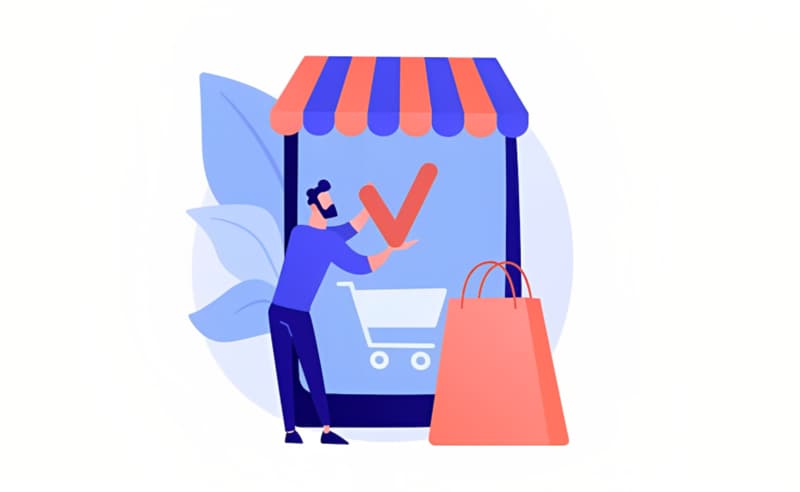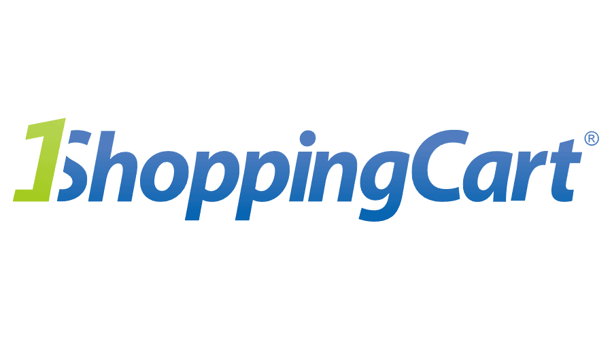
E-commerce is one of the fastest-growing industries in the world, with a predicted market size of $8.148 trillion by 2026. With the growth of online shopping, competition among e-commerce websites is fierce.
In order to succeed in this highly competitive online retail market, it's essential to have a well-designed eCommerce website that helps you stand out from the crowd. A website with all the necessary eCommerce features can help you achieve your business goals and provide a seamless shopping experience to your customers. In this article, we will discuss the same.
Essential eCommerce Features for a Smooth Online Shopping Experience
Responsive Design
Responsive design is an absolute must for eCommerce websites. With the increasing use of mobile devices, it is essential that your website is optimized for all devices, whether it be a desktop, tablet, or smartphone.
A responsive website will provide a better shopping experience for customers, as they can easily navigate through the site and make purchases from any device. It also improves the website's search engine optimization (SEO) as Google prioritizes mobile-friendly websites in its search results.
User-Friendly Navigation
Navigation is a critical aspect of an eCommerce website as it allows customers to find what they are looking for easily. A user-friendly navigation system should have a clear and intuitive layout, with categories and subcategories clearly defined.
Customers should be able to find the products they are looking for within a few clicks. A search bar, breadcrumb trail, and a sitemap can also help improve navigation and make it easier for customers to find what they need.
Site Search
Site search is a feature that allows customers to search for specific products on your website. This feature is crucial for websites that have a large number of products.
A site search should be easy to use, with a clear and intuitive interface, and should return relevant results based on the customer's query. Site search can also be used to display suggested products based on previous searches or the customer's browsing history.
High-Quality Product Photos & Videos
Customers want to see the product before they make a purchase. So it’s important to provide clear and detailed images. The use of 360-degree images and videos can help customers get a better understanding of the product, which can increase the likelihood of a purchase.
The photos and videos should be clear, accurate, and visually appealing. They should also be zoomable, allowing customers to get a closer look at the product. In addition, videos can be used to demonstrate how the product works, which can be especially useful for products that have a lot of features or functions.
Sort & Filter Options
Sort and filter options help customers narrow down their search results and sort products based on price, brand, and other criteria. These options make it easier for customers to find what they are looking for and can help improve the overall shopping experience.
Customers should be able to sort products based on various criteria, such as price, popularity, or brand. They should also be able to filter products based on various characteristics, such as color, size, or material.
Reviews & Rating Display
Reviews and rating features provide customers with valuable insights into the product's quality, performance, and customer satisfaction. This can help customers make informed decisions, as they can see the pros and cons of a product.
Reviews and ratings should be displayed prominently on the product page, along with the number of reviews and an overall rating. Customers should also be able to leave their own reviews and ratings, which can help build trust and increase customer engagement. In addition, make sure the website has a system in place to manage reviews and ratings, as well as to respond to any negative feedback.
FAQ Section
An FAQ section is an essential feature for eCommerce websites. It provides customers with answers to common questions and concerns. A well-organized and easy-to-understand FAQ section can improve the overall user experience.
The FAQ section should be easy to navigate and should cover a wide range of topics, including shipping, returns, product specifications, and payment options. Customers should be able to find the information they need quickly and easily, which can help reduce frustration and improve the overall shopping experience.
Exchange & Return Information
Exchange and return information is another must-have feature that can make your eCommerce website stand out from the crowd. Providing detailed information on the exchange and return process helps build customer confidence and trust, especially when your customers are not satisfied with a product.
The information should be clear, concise, and easy to understand, covering topics such as the return process, time frame, and any fees or restrictions that may apply. Customers should be able to find the information they need quickly and easily, which can help reduce frustration and improve the overall shopping experience.
Web Push Notifications
Web push notifications provide customers with timely and relevant information about their orders and purchases. It is also a great way to keep customers excited about new products, sales, and promotions. All your customers have to do is opt-in to receive push notifications.
Web push notifications should be easy to opt-in and opt-out of, and should be targeted and relevant to the customer. It can help improve customer engagement and satisfaction, as well as drive repeat business.
Social Media Integration
Social media is a powerful tool for businesses, and integrating it into your eCommerce website can help to improve customer engagement. This integration can take the form of social media sharing buttons, which allow customers to share products on their social media platforms.
It can also take the form of a social media login option, which makes it easier for customers to create an account on your website. Additionally, having a social media presence can help to build brand awareness and increase customer engagement.
Cart & Checkout
The cart">cart and checkout process is the final step in the purchasing process. A seamless and secure checkout process can help to increase conversions, while a slow or complicated checkout process can lead to customers abandoning their carts. It is important to have a simple and user-friendly checkout process, with clear and concise information on shipping, taxes, and payment options.
The checkout process should also be streamlined, with a clear and intuitive interface, and should allow customers to choose from multiple payment options. Customers should also be able to easily update or remove items from their cart and save items for later.
Multiple Payment Options
Multiple payment options allow customers to choose the payment method that best suits their needs. It can help to improve the overall user experience and increase conversions. So, make sure your shopping cart accepts multiple payment options.
Payment options should include credit card, PayPal, and other popular payment methods, such as Apple Pay or Google Pay. The payment process should be secure, with SSL encryption and secure payment gateways, to ensure that customer information is protected.
Order Tracking
Order tracking is a feature that allows customers to track the status of their orders. This feature can help to improve customer engagement, as it provides customers with a clear understanding of when they can expect their order to arrive.
This information should be easy to access and updated in real time. Customers should also be able to track their orders through a secure and user-friendly interface, helping enhance customer satisfaction.
Customer Support
Customer support is an essential feature for eCommerce websites, as it provides customers with the assistance they need to resolve any issues or concerns. A responsive and helpful customer support team can help to build trust with customers and improve the overall user experience.
The customer support system should be easy to access, with clear and concise information on the support options available, such as email, phone, or live chat. The customer support team should also be knowledgeable and friendly and should be available to assist customers during regular business hours.
Chatbots
Chatbots are a useful tool for businesses, as they can provide customers with instant support 24/7. Chatbots use artificial intelligence (AI) to understand customer queries and provide relevant answers. This can help to improve the overall user experience.
Chatbots can also be used to provide personalized recommendations, making the shopping experience even better. They can also be used to assist with the ordering and checkout process, as well as answer common questions about shipping, returns, and product specifications.
Footer Navigation
Footer navigation provides customers with access to important information and resources, such as the FAQ section, customer support, and privacy policy.
The footer should be easily accessible from any page on the website and should be designed with a clear and intuitive layout. This can help improve the overall user experience, making it easier for customers to access important information they need.
The Bottom Line
An eCommerce website is a crucial component of any online retail business. So, if you are looking for a platform to sell digital products or planning to design your website from scratch, make sure you incorporate the aforementioned eCommerce website features. This will help you provide a seamless shopping experience to your customers and achieve business goals.
However, if you have a static website and you don’t want to build a new website from scratch, you can use an online site builder tool like Shoprocket. This will turn your existing website into an eCommerce site with all the necessary features needed to provide your customers with a great shopping experience.
Get in touch with our team to understand how we can help you build an outstanding eCommerce website.






